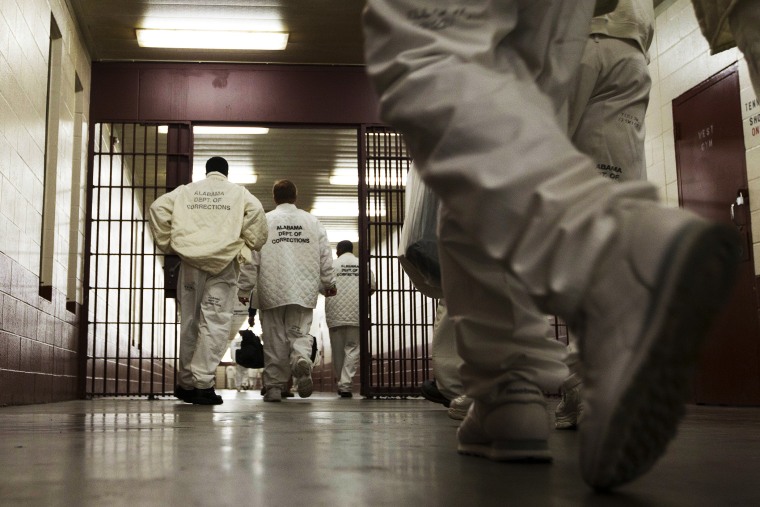For the second time this year, prisoners in Alabama are planning a nonviolent demonstration and work stoppage to protest conditions inside the state’s prisons.
Melvin Ray, an inmate at the St. Clair correctional facility in Springville and founder of prison-based group Free Alabama Movement (FAM) says this weekend’s strike is an effort to improve education programs and end overcrowding, harsh sentencing, and what he calls “the free labor system” in which prisoners work for little-to-no monetary compensation.
In an interview with Salon, Ray said, “There is not even a pretense of doing anything about ‘corrections’ … they’re running a slave empire.” Ray says not enough is being done to rehabilitate inmates for their lives after incarceration.
Ray stressed the importance of this weekend's demonstration remaining nonviolent, acknowledging that violence is one of the main reasons many inmates are imprisoned.
The work inmates do includes food preparation, laundry, and facility maintenance. The Alabama Department of Corrections also runs a prison industries program which operates 17 different facilities across the state where inmates do everything from furniture construction to license-plate manufacturing.
Most inmates work inside the prisons and receive no wages. According to the state Department of Corrections, that’s how it has always been. Other inmates work in outside facilities and receive only 35 to 50 cents per hour as compensation for their labor.
Ray says the reason his group has decided to protest with work stoppages is because labor remains “the only weapon or strategy ... we have,” adding, “They’re incarcerating people for the free labor.”
Ray spoke to Salon from prison using a cell phone -- something he’s forbidden to have by prison rules -- and did not explain how he was able to make the call.
A similar FAM-led protest in January spread from the St. Clair facility -- which is located outside of Birmingham -- to the Holman correctional facility, near Mobile. The two facilities are more than 200 miles apart. FAM has also posted dozens of cell phone videos to YouTube to show what conditions are like inside the prisons.
Ray says he is unsure how long this weekend's protest will last, but believes that the longer it continues, the more it will spread. “If a prison goes down for two weeks, there’s a strong possibility that you’ll capture another prison,” he told Salon. But if it lasts for three weeks, he said “there’s no telling how many prisons might get in.”
The Department of Corrections and the Alabama governor’s office did not respond to Salon’s request for comment, but during January’s protest, officials said some inmates might be disciplined for refusing to work. A spokesman for the Department of Corrections also noted in January that some of the inmates’ requests -- like changes to parole and sentencing -- were outside of the department’s authority.
Other complaints against Alabama’s prison system have been reviewed by the U.S. Department of Justice. Federal officials released a report in January after investigating one of the state’s prisons for women. The report cited “serious systemic operational deficiencies” that exposed inmates to "staff-on-prisoner sexual abuse and sexual harassment.”
Ray says he does not believe government officials will reform the state’s prison system. “No one is going to do anything,” he told Salon. “So we have to do it ourselves.”
